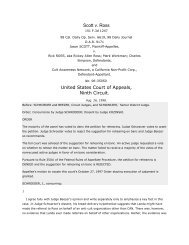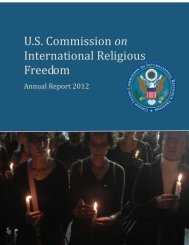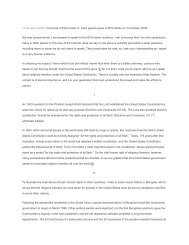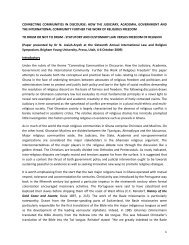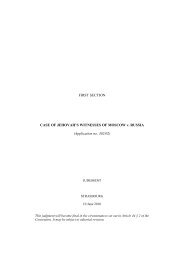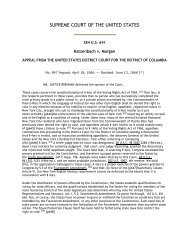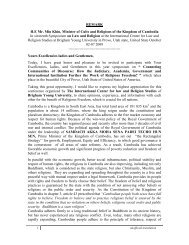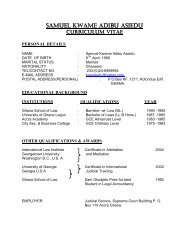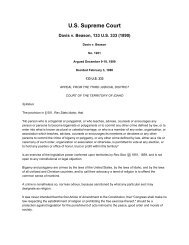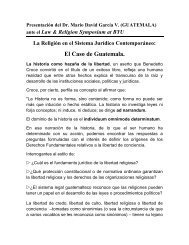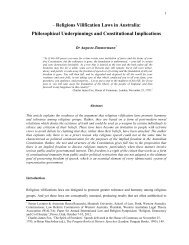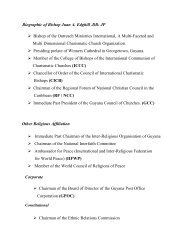Ruling (.pdf) - International Center for Law and Religion Studies
Ruling (.pdf) - International Center for Law and Religion Studies
Ruling (.pdf) - International Center for Law and Religion Studies
You also want an ePaper? Increase the reach of your titles
YUMPU automatically turns print PDFs into web optimized ePapers that Google loves.
Horizons appealed that decision, <strong>and</strong> the Court denied the appeal. It is questionablewhether these circumstances even support a claim that the first two elements of theissue estoppel test have been met. It is not clear that it is appropriate to parse certainfindings from a decision which ultimately rejected a party’s claim that it was covered bya statutory provision such as 24(1)(a).Exercise of Discretion[9] There is significant value in consistency <strong>and</strong> in finality of Tribunal decisions.Parties should not generally be put to the time <strong>and</strong> expense of relitigating issues thathave been finally determined. Particularly with decisions of tribunals like the HumanRights Tribunal, which have an important educational purpose, the community shouldhave confidence that legislative interpretations <strong>and</strong> policy approaches are followed withconsistency, unless there is good reason to depart from previous decisions. As theCourt in Danyluk, supra, said:2008 HRTO 22 (CanLII)The law rightly seeks a finality to litigation (….) An issue, oncedecided, should not generally be re-litigated to the benefit of thelosing party <strong>and</strong> the harassment of the winner. A person shouldonly be vexed once in the same cause. Duplicative litigation,potential inconsistent results, undue costs, <strong>and</strong> inconclusiveproceedings are to be avoided.Finality is thus a compelling consideration <strong>and</strong> judicial decisionsshould generally be conclusive of the issues decided unless<strong>and</strong> until reversed on appeal. However, estoppel is a doctrineof public policy that is designed to advance the interests ofjustice. (paras. 18-19)[10] On the last point, the Court emphasized that, since the purpose of estoppel is topromote fairness, a decision maker must ensure that its application does not insteadlead to an injustice. Quoting Finch J.A. in Bugbusters Pest Management Inc. (1998), 50B.C.L.R. (3d) 1, the Court in Danyluk said: “It inevitably calls upon the exercise of ajudicial discretion to achieve fairness according to the circumstances of each case.”(para. 63).[11] The same considerations apply when determining a claim <strong>for</strong> abuse of process.91



